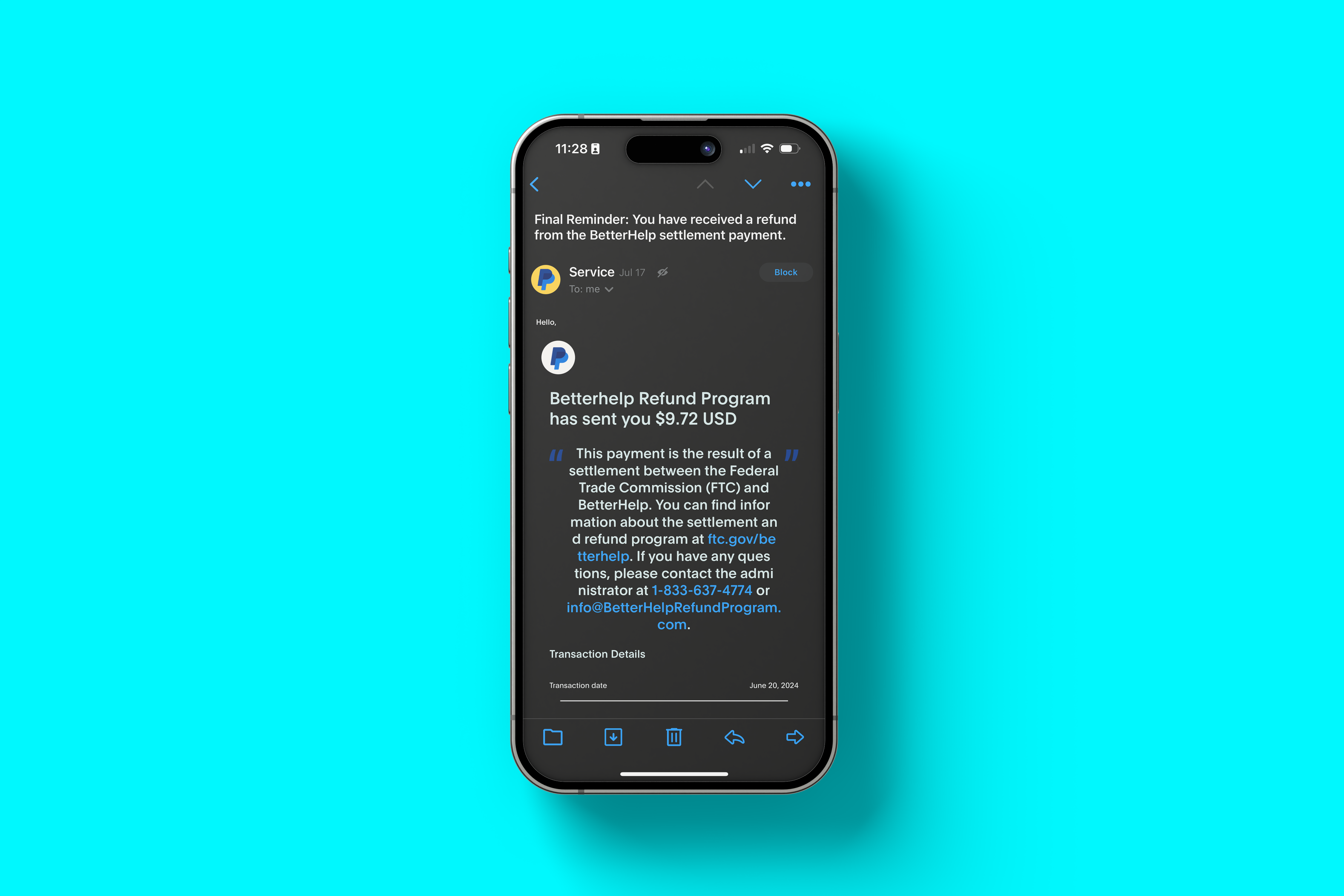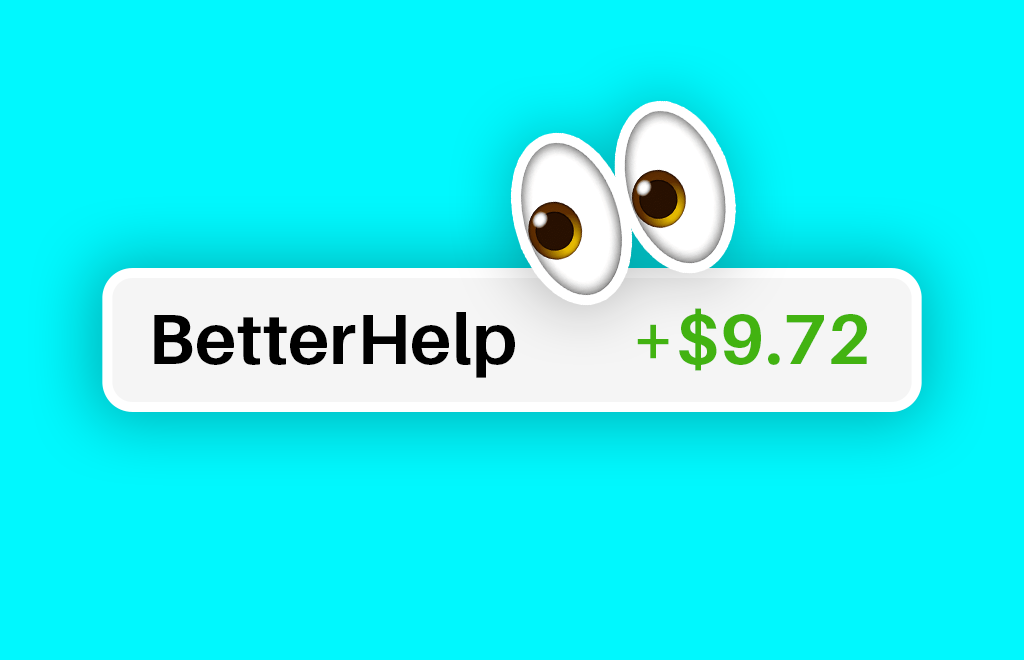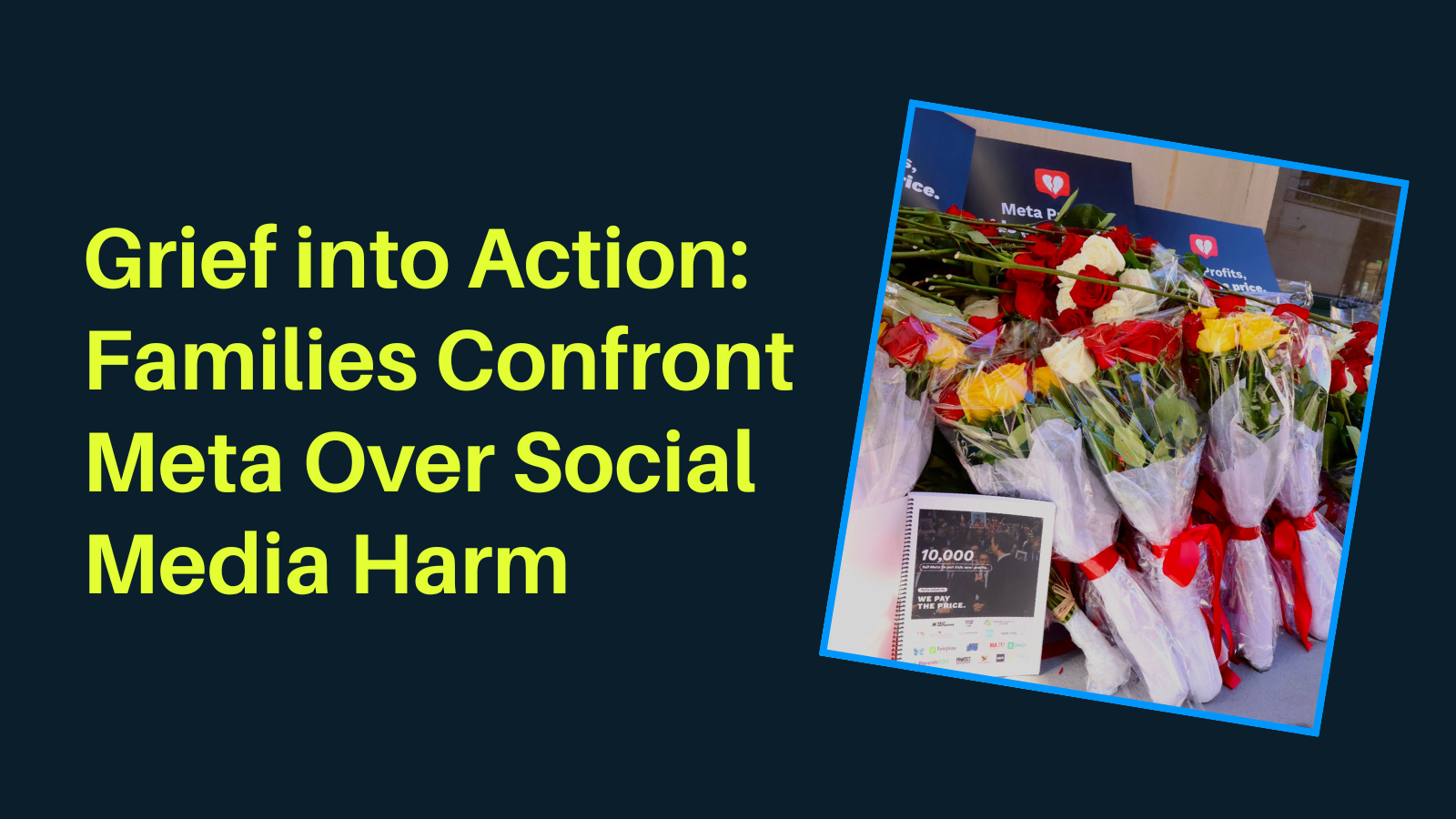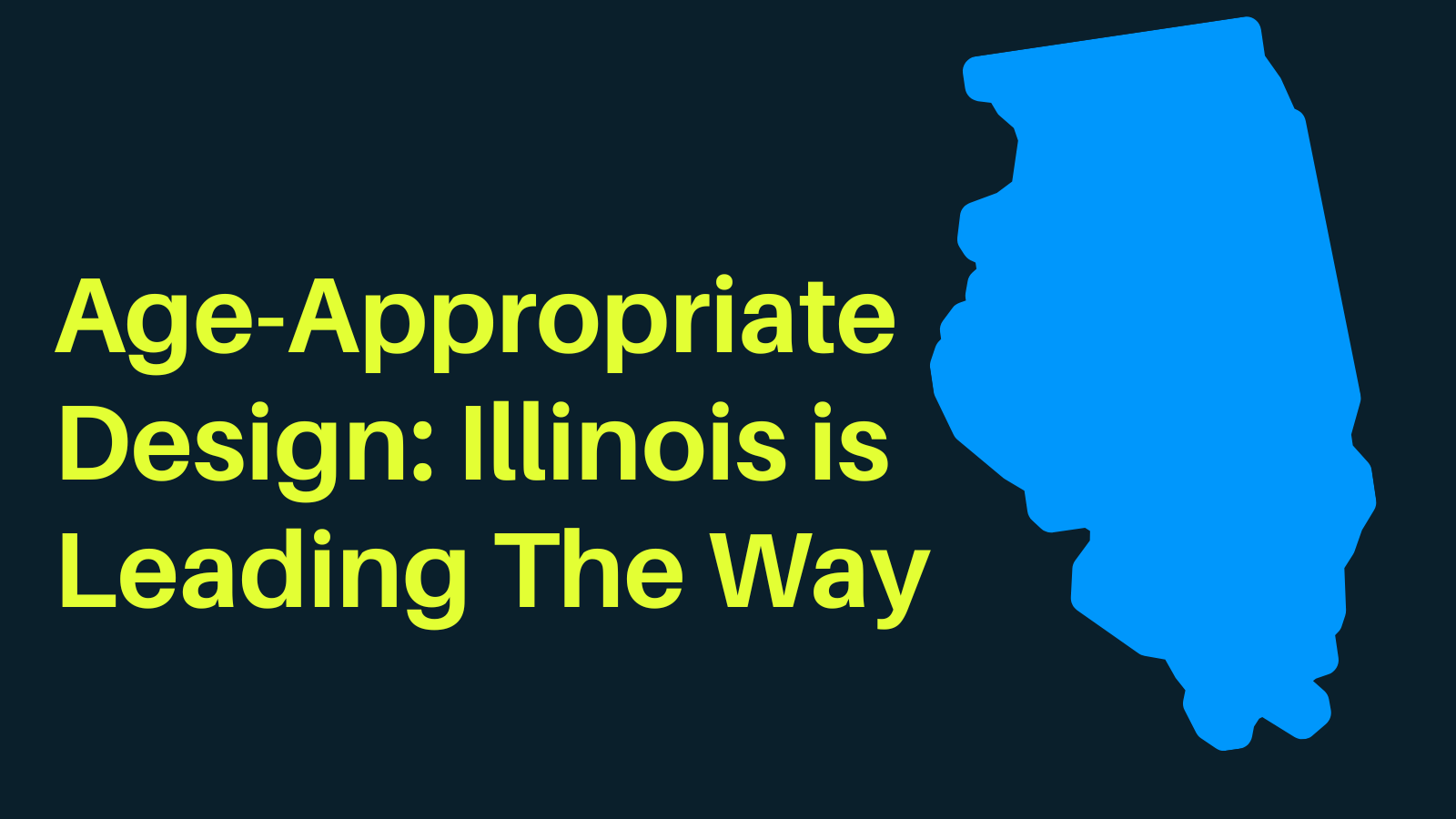Being a consumer in the modern digital age is a thrilling experience: you can break a sweat with a Pilates class in the morning, practice your language skills in-between meetings, and log into Instagram and see suspiciously curated content because a therapy platform sold your sensitive data to the highest bidder. A shocking reality for me and over 800k other users who used the BetterHelp therapy platform from Aug 2017, to Dec 2020.
When I woke up to a PayPal payment of $9.72 titled “BetterHelp & FTC” one June morning, I was intrigued and quickly began to learn more about the FTC settlement with BetterHelp. The suit alleges “BetterHelp promised to keep users’ information private but revealed data to Facebook, Snapchat, Pinterest, and Criteo for advertising purposes. This data included email addresses, IP addresses, and personal answers to health questions.”

I’ve always had what I’d like to personally brand as a “smart, laissez faire” attitude when it comes to my data. I scour through the cookie permissions for every website I go on, my passwords are unique to each platform, I turn off location data for applications that don’t require them, and I’ve always been generally diligent when it comes to tech.
But what happens when companies start leveraging your private data to pad their bottom line? Time and time again we see greedy companies handling our data poorly; they steal our creative and copyrighted works, continuously experience preventable data breaches, and consistently sell our data to the highest bidder.
Tech companies continuously turn massive profits by endlessly tracking and profiling us, determining how to keep us hooked, and then hyper-targeting us with ads. This fuels a pernicious and pervasive pursuit of our data across almost all platforms — because data is money. Companies sell data to boost their profits. It’s a toxic business model that Accountable Tech helped term as surveillance advertising. I experienced the harms of surveillance advertising first-hand with BetterHelp.
BetterHelp’s own press release, argues that using “limited, encrypted information to optimize the effectiveness of our advertising campaigns so we could deliver more relevant ads and reach people who may be interested in our services” is an “industry-standard practice [and] is routinely used by some of the largest health providers, health systems, and healthcare brands.”
I was shocked and rapidly started making the connection between my explore page on Instagram with the assessment questions I answered when I started seeing a therapist during the height of the COVID-19 lockdown in 2020. Content that I didn’t necessarily want to see or had tried to consciously avoid as I started identifying social media’s effect on my mood.
Clinical psychologist Mary Ann McCabe, PhD, ABPP, a member-at-large of APA’s Board of Directors explains, “watching something relatively benign, like exercise videos” causes social media algorithms to double down on that content, offering up more and more material related to body image and weight. “It was an echo chamber,” McCabe added. “And several of my patients attributed their eating disorders to this online behavior.”
I wondered why I started having an adverse reaction to the perfectly curated algorithm. Content that I normally would engage with very clearly was potentially fueled by my own answers. These tech giants ‘personalize’ everything we see – not just the ads, but news, recommendations, and more – to keep each user hooked. Very rarely do I trust Big Tech companies from protecting our data and security, but I was even more shocked to realize that these companies work together to coalesce the most intimate details of our online behavior, eroding privacy and threatening our own civil liberties.
As I’ve been onboarded onto Accountable Tech’s team, I’m grateful to see our transatlantic leadership in efforts to Ban Surveillance Advertising. We can only end the incentives these companies have to addict and exploit users by getting to the root of their toxic business model to collect, retain, and sell data if we ban surveillance advertising. $9.72 is not enough to address the harms of this toxic business model. We must ban surveillance advertising.








